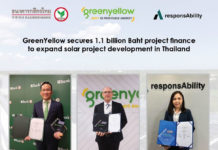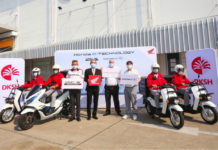Thailand ranks third in Southeast Asia for doing business
The World Bank has ranked Thailand as the third-best of the 11 nations which comprise the Southeast Asian region in terms of ease of doing business as measured by lower tax costs for companies. The country came in at 18th overall of the 189 nations surveyed overall, its same rank as 2012.
It’s probably no surprise that the number one ranked nation for doing business in the world, and therefore, of course, Southeast Asia, is Singapore. Malaysia came in at sixth in the world and second in the ASEAN region.
Rounding out the top-ranked countries worldwide were Hong Kong in second place, New Zealand third, the United States fourth and Denmark fifth.
The report noted the decrease in social security contributions by employers to four percent in 2012, although the report did not cover the reduction in the corporate tax rate from 30 to 23 percent.
Protecting investors and providing electricity were two of the areas where Thailand performed well in relation to other countries.
The only real negative comes with the average time it takes to actually establish a business in Thailand. This takes 27.5 days, compared with Singapore where the same process can be achieved in just three days.
Nonetheless, government agencies are working to improve this time lag by decentralizing power and giving provincial departments greater autonomy. The government is also talking with the autonomous Bangkok Metropolitan Administration (BMA) to create a one-stop service centre for businesses applying for utilities and construction permits.
Permits for construction currently take around 157 days to be approved while getting electricity is around 35 days. If the BMA and the government do set up the one-stop service these periods should be reduced significantly.
Paying taxes takes up an average of 264 hours per year, property registration just two days and importing or exporting products take up between 13 and 14 days.
The only other areas where Thailand was weak, although far from the worst, was the time taken to enforce contracts (440 days average) and resolving insolvency (2.7 years).
The government is also aiming to increase the Gross Domestic Product (GDP) contribution of small to medium enterprises (SMEs). Currently SMEs contribute 37 percent of GDP but the government is hoping to ramp this up to around 40 percent over the next two years. This would raise the value of SMEs by 400 billion baht.
The World Bank’s senior economist for Thailand urged the nation to adopt a new economic model for future development, concentrating on its human resources and producing value-added products and services.
In related news, the sixth edition of HSBC’s Expat Explorer Survey ranked Thailand as the number one destination for quality of life for foreigners.
Its survey of 7,000 expat respondents placed Thailand at number one ahead of Bahrain, China, Cayman Islands, Australia, Singapore, India, Taiwan, Spain, and Brazil. An interesting mix if ever there was one.
The survey was largest ever undertaken covered aspects such as ease of making friends, social life, families with children, and ability to earn more money. In these last two categories Thailand ranked much lower.










